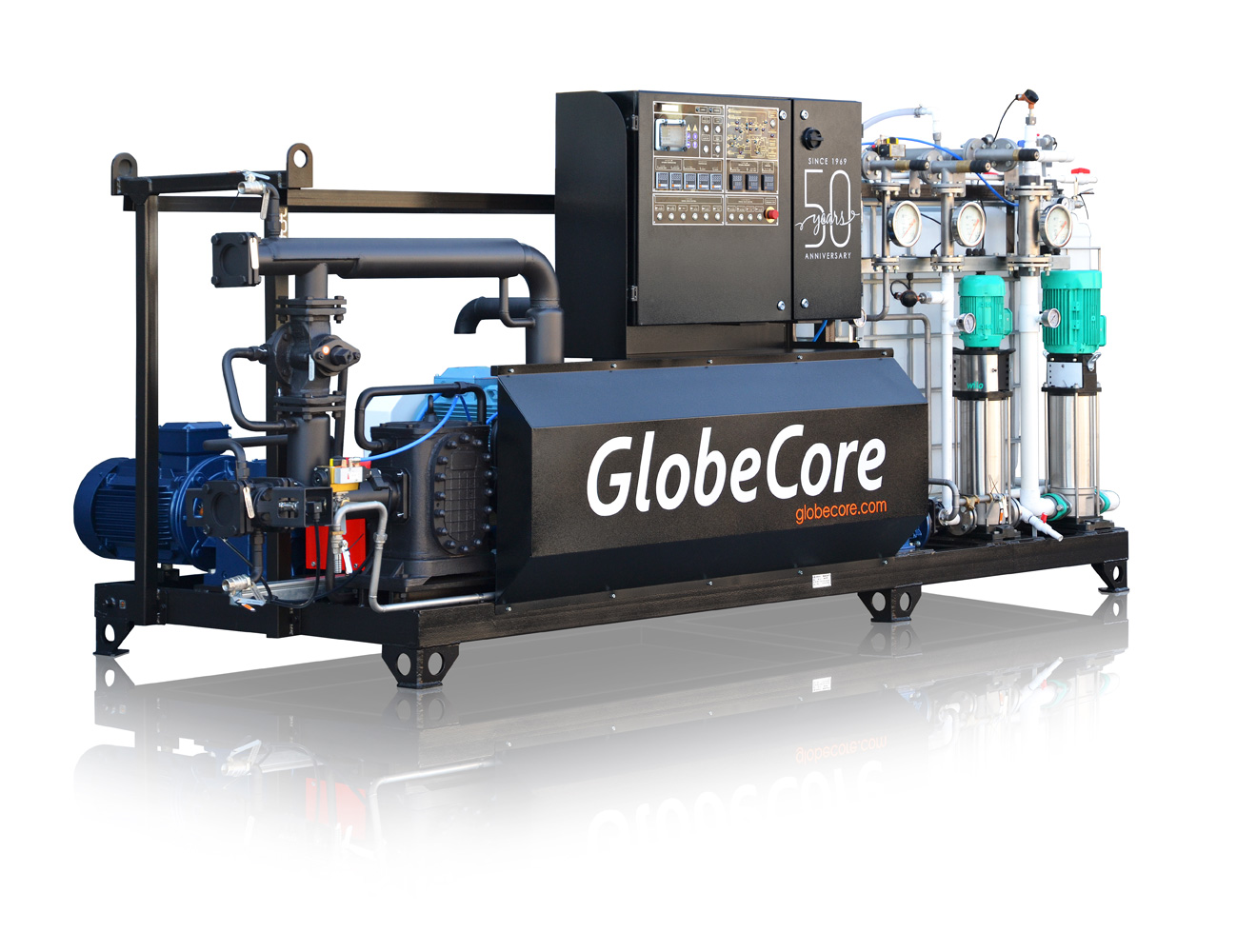
As a rule, bitumen emulsion is made by colloid mills, but many industries apply other units that allow for dispersion. In colloid mills, the mixture of hot bitumen and water phase are passed between a rotor in full motion and a stationary stator. There are special claws and slots on the surface of the rotor and stator that provide for turbulent flow. There may be batch and continuous bitumen emulsion units.
Batch units require two production stages to be performed: (1) water-phase preparation; and (2) production of bitumen emulsion phase. The water phase is prepared in a special container with the metered components added. The resulting solution should be thoroughly blended. At the next stage, the bitumen and previously prepared water phase are supplied to the colloid mill. Precise metering of components is essential to obtain a high-quality bitumen emulsion. Production units with semi-automated and automated controls help to reduce the possibility of operator errors.
The continuous production process includes such procedures as water heating and the in-line metering of components provided by metering pumps for each component. This production process doesn’t require batch containers. The water-phase feeding system may be adjusted to ensure sufficient time for the chemical additives to react. They are neutralized and dissolved untl the water-phase is mixed with the bitumen. The continuous production process requires special flow meters for metering all necessary components except for the acids. The acid is added based on the rate of acidity measured in the water-phase. Additionally, modifiers such as latex and SBS-polymers may be also applied. The unit should be equipped with a special block device since latex is very sensitive to external influences that may cause its break-up and the subsequent clogging of pumps and pipelines.
If SBS-polymers are used, the emulsion is let out at a temperature higher than the boiling point of water (100C/212F. The product therefore, should be produced at excessive pressure and must be sufficiently cooled down before it is supplied to the storage tank.

